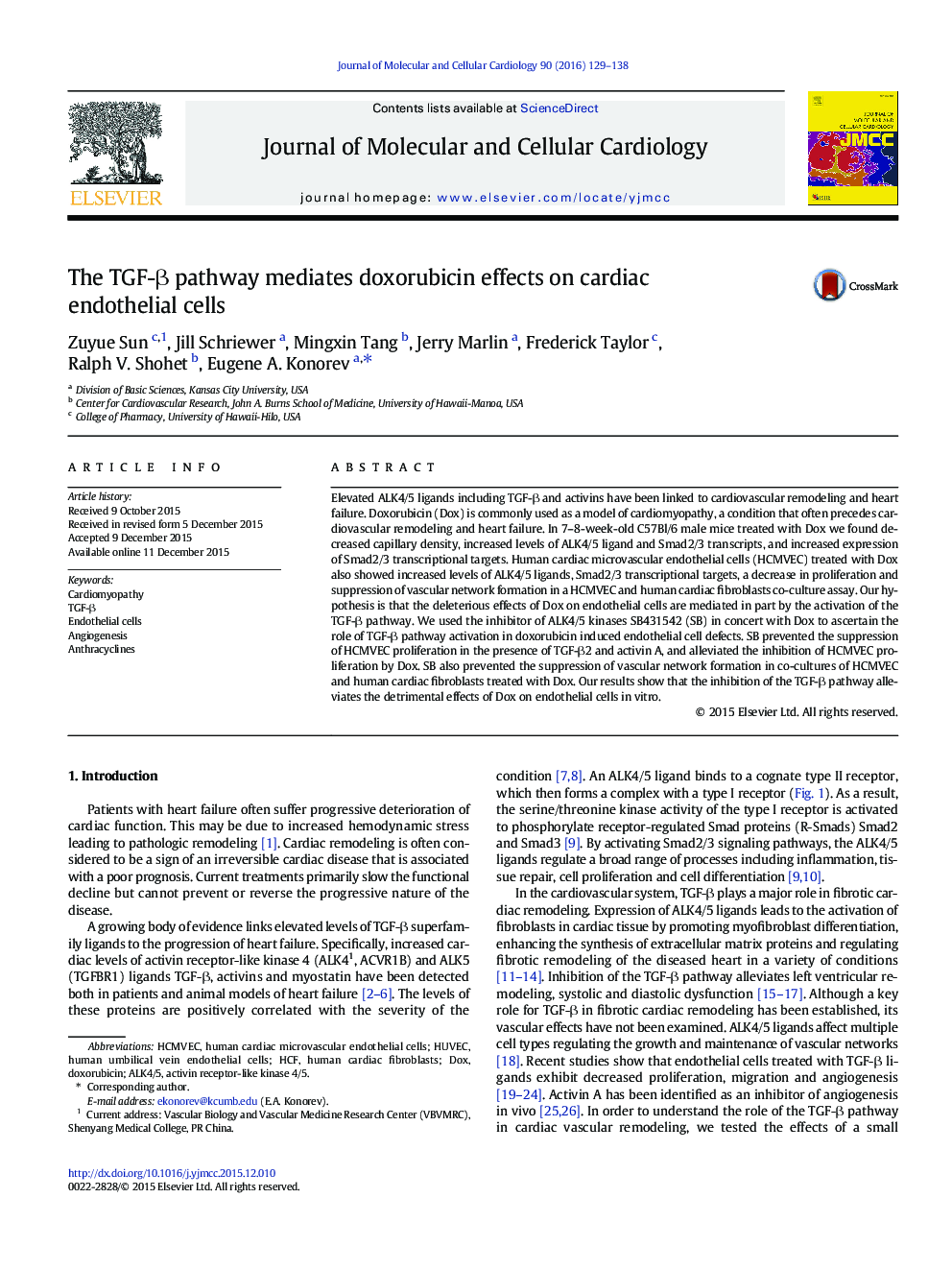| Article ID | Journal | Published Year | Pages | File Type |
|---|---|---|---|---|
| 8474028 | Journal of Molecular and Cellular Cardiology | 2016 | 10 Pages |
Abstract
Elevated ALK4/5 ligands including TGF-β and activins have been linked to cardiovascular remodeling and heart failure. Doxorubicin (Dox) is commonly used as a model of cardiomyopathy, a condition that often precedes cardiovascular remodeling and heart failure. In 7-8-week-old C57Bl/6 male mice treated with Dox we found decreased capillary density, increased levels of ALK4/5 ligand and Smad2/3 transcripts, and increased expression of Smad2/3 transcriptional targets. Human cardiac microvascular endothelial cells (HCMVEC) treated with Dox also showed increased levels of ALK4/5 ligands, Smad2/3 transcriptional targets, a decrease in proliferation and suppression of vascular network formation in a HCMVEC and human cardiac fibroblasts co-culture assay. Our hypothesis is that the deleterious effects of Dox on endothelial cells are mediated in part by the activation of the TGF-β pathway. We used the inhibitor of ALK4/5 kinases SB431542 (SB) in concert with Dox to ascertain the role of TGF-β pathway activation in doxorubicin induced endothelial cell defects. SB prevented the suppression of HCMVEC proliferation in the presence of TGF-β2 and activin A, and alleviated the inhibition of HCMVEC proliferation by Dox. SB also prevented the suppression of vascular network formation in co-cultures of HCMVEC and human cardiac fibroblasts treated with Dox. Our results show that the inhibition of the TGF-β pathway alleviates the detrimental effects of Dox on endothelial cells in vitro.
Keywords
Related Topics
Life Sciences
Biochemistry, Genetics and Molecular Biology
Cell Biology
Authors
Zuyue Sun, Jill Schriewer, Mingxin Tang, Jerry Marlin, Frederick Taylor, Ralph V. Shohet, Eugene A. Konorev,
